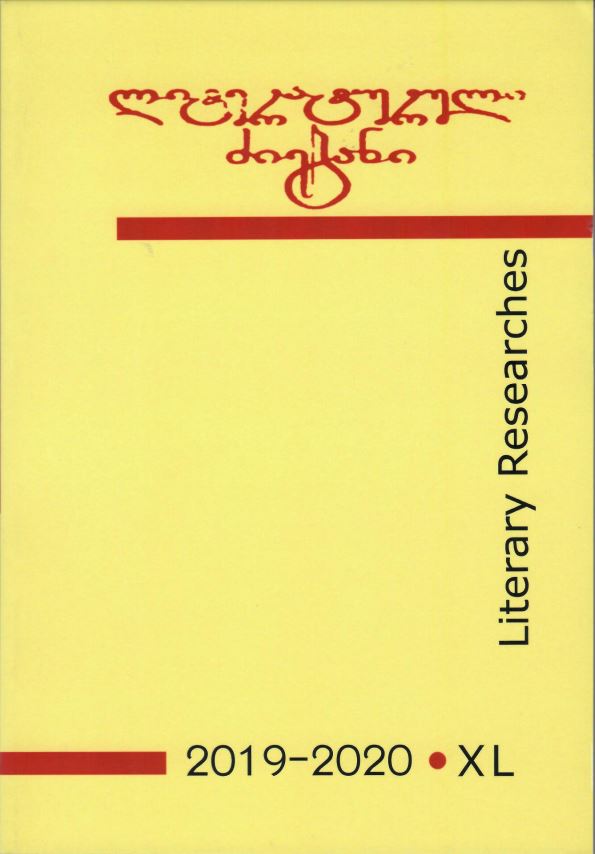გამოქვეყნებული 2020-10-20
საკვანძო სიტყვები
- Church,
- Catholicos,
- Synod,
- Exarchate,
- Autocephaly
როგორ უნდა ციტირება
ანოტაცია
On March 12, 1917, some days after the retirement of the Russian Emperor, the Georgian clergy declared the autocephaly of the Georgian Church, i.e. the independence of the Georgian Church from the Russian Church. At the beginning, the Russian Provisional Government supported this decision, but the the Synod of the Russian Church firmly opposed it.
The Georgian Church viewed this process as follows: the autocephaly of the Georgian Church, which was to cover all the territory of the Exarchate of Georgia (which incorporated not only then-time Georgia, but the whole Trans-Caucasia) was to recognize, but on the other hand, an institute of an autonomous Russian bishop was to establish for the Russian (as well as non-Russian and non-Georgian) perish of the Caucasus within the limits of the Catholicosate and under the canonical polity of the Catholicos. The Russian Government considered that the autocephaly of the Georgian Church (Georgian Catholicosate) was to restore under the leadership of the Cathilocos of Mtskheta, whose perish would be the Georgian Orthodox Christians, but at the same time, a Caucasian Metropolitanate of the Russian Church with its chair in Tbilisi was to establish for non-Georgian Orthodox Christians. The Russian Holy Synod found it difficult to develop any clear view before the Council was held, but if they considered the Georgian autocephaly absolutely inadmissible at the outset, later, owing to the irreversible course of events, they agreed to the establishment of two parallel Church structures, for Georgian and non-Georgian Orthodox Christians living in Georgia, respectively.
In its attempt to solve the issue, the Russian government sent Professor Vladimir Beneshevich, a scholar in Byzantine and Georgian Canon Laws to Tbilisi, as its Commissioner, who, to a certain extent, personally, represented the position of the Russian Church as well. If, at the beginning, Beneshevich supported the position of the Georgian clergy, gradually, he appeared a defender the Russian interests to the opposing parties.
Now a good opportunity to describe and understand then-time tense situation is given by the archive materials, which were first published only recently, such as the memories by Kalistrate Tsintsadze, diaries by Nikita Talakvadze and reports submitted to the Russian Government by Vladimir Beneshevich, which he used to send from Tbilisi to Petersburg.

